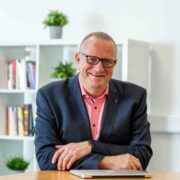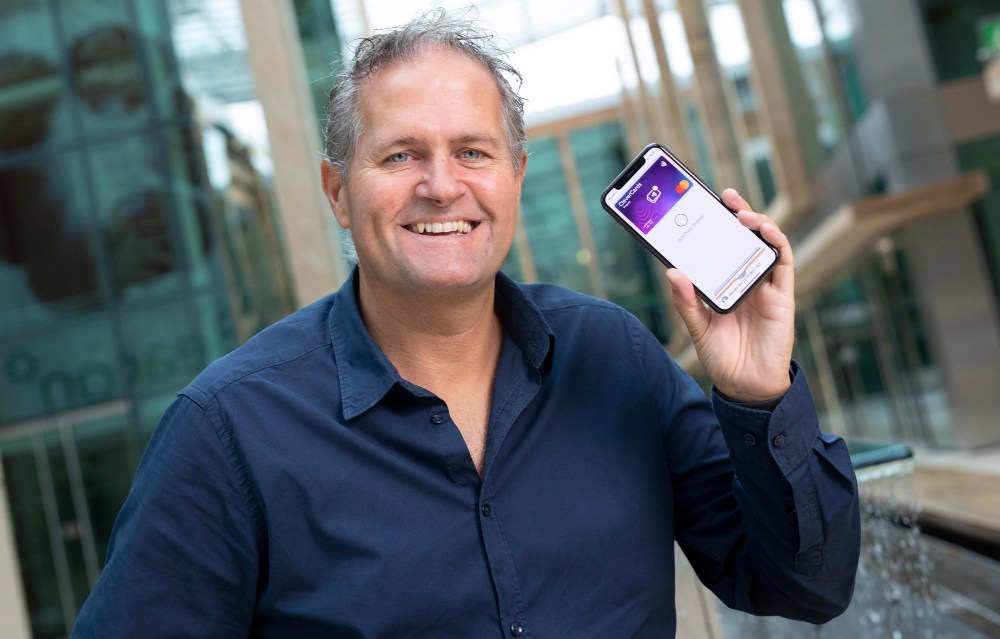Podcast Ep 147: Ireland could be the epicentre of the next revolution in computing thanks to returning native Joe Fitzsimons’ Horizon Quantum Computing.
If you think of the dimensions of today’s digital world – a world made real by electric pulses in sequences of ones and zeros – the next level up is quantum computing, which at its most basic interpretation is computing as we know it in four dimensions. In other words, computing on a scale that our greatest imaginations can only glimpse.
This crude metaphor doesn’t do it justice, says Irishman Joe Fitzsimons. “We’re only at 1948 if you were to use comparative terms with the computing of today.”
“The way I think about it, if we’re in the equivalent of 1948 in quantum computing terms, how do we make 70 years’ worth of computer software progress in seven years?”
In other words, buckle your seatbelts because technology as we know it is about to enter its own kind of space age.
Quantum computing is a rapidly emerging technology that harnesses the laws of quantum mechanics to solve problems too complex for classical computers.
The next Silicon Valley
In November, ThinkBusiness reported how Fitzsimons’ Horizon Quantum Computing, a business he started in Singapore, is to create 10 new jobs over the next six months.
Horizon Quantum Computing is developing a new generation of programming tools to simplify and expedite the process of developing software for quantum computers.
By removing the need for prior quantum computing experience to develop applications for quantum hardware, Horizon’s tools are making the power of quantum computing accessible to every software developer.
The business is hiring for a range of positions, including project managers as well as a director of engineering, who will build and lead a new software engineering team.
Horizon Quantum Computing also plans to partner with local universities to provide internship opportunities.
The company was founded in 2018 by Dr Joe Fitzsimons, an expert in the space of quantum computing applications. Dr Fitzsimons has over 18 years of experience in quantum computing and computational complexity theory and holds a doctorate from the University of Oxford on quantum computing architectures. The leadership team also includes Dr Si-Hui Tan, chief science officer, who holds a PhD in Physics from MIT and has been actively involved in quantum research for 18 years.
“Ultimately what quantum computing is doing is harnessing physical effects to process information more efficiently,” Fitzsimons explains patiently. “So the model of computing that we’ve used since the 1940s has been baked in a model of physics that you wouldn’t necessarily think in; zeros, ones, twos, threes, whatever. But it turns out that in nature there are other kinds of states that can’t be represented in this way. And these mostly show up in quantum mechanics, quantum superpositions and entangled quantum states, and there’s just no way to represent them in a conventional computer or a compact way.
“So what quantum computing is doing is essentially realising that there is this extra set of states, extra sets of operations for manipulating them, that can be used in computation. If you can build hardware that is sufficiently well-isolated from its environment, it can manipulate these states, without all of the quantum effects getting washed out.
“It sounds futuristic. And it is. And it’s still some way out. We’re at a point where we’re seeing the first quantum processors scale up and get to larger amounts of memory; to a point where they are starting to exceed conventional computers for certain, very specific tasks.”
Fitzsimons’ business is about making these tasks useful in the real world and useful in such a way that they can benefit businesses’ bottom lines.
Using his analogy, the world is barely at a stage of quantum computing whereby the world’s first calculator as we know it has been invented yet in comparative terms with the march of computing as we know it today.
“I tend to think of us as in 1948,” Fitzsimons explained, pointing out that only a handful of giant corporations such as Amazon have created the environments for quantum computing to perform.
“But again, the one difference between now and 1948 is we have the internet and its so much easier to hook these device up over the internet.”
In other words the cloud and the internet will make it easier for technologists like Fitzsimons to access quantum computing resources from anywhere and build real world applications.
“The first applications we’re likely to see will be in areas where high performance computing is currently being used. The first applications are likely to be in areas like chemistry and pharma where there is a strong link to quantum mechanics. It turns out that quantum mechanical computers are just better at simulating quantum mechanics than conventional computers.”
Beyond this the innovations will filter into engineering and finance. However, if Fitzsimons is successful, he will have engineered it that Dublin could be the epicentre of this quantum computing revolution in the same way that Silicon Valley played a fundamental role from the 1950s to today.
“One of the main issues we run into at the moment is that the number of people that are in any way expert in quantum algorithms is very small. It’s only a couple of hundred people worldwide.”
The challenge to build future quantum computing systems is down to physics and people. The skills have yet to be developed.
“When it comes to putting together these applications and thinking of how quantum computing can be applied, well we are pretty restricted. If you think about geophysics in oil and gas or simulating light fields in lithography when you are etching silicon chips, these are all things where you would expect to see a large speed up in quantum computing. But the number of people that are experts both in that domain and in quantum algorithm is zero. There are precisely zero people that are experts in computational geophysics and in quantum computing.”
Fitzsimons’ journey in to quantum computing began in 2004 when he was an undergraduate student at UCD and studied the subject in fourth year. “I wanted to work on a frontier technology, I thought that would be cool.
“I did a PhD in quantum computing because I thought it was the area of technology that had the highest chance of being able to relive the experience of the personal computing revolution, or something like it.
“I was only like 15 years wrong on my [comparative terms] timeline.”
Fitzsimons’ expertise led to him working in Singapore and in 2018 he set up Horizon Quantum Computing to create real-world applications for quantum computing. “The way I think about it, if we’re in the equivalent of 1948 in quantum computing terms, how do we make 70 years’ worth of computer software progress in seven years?
“For us as a company that’s where a lot of our value is going to be tied up for a long time. It will be in creating the intellectual property and pushing the technology forward on the software side in terms of the tools that can harness quantum computing to solve hard problems.”
In many ways it is a bit like restarting the history of computing because much of the data that will be created or generated goes beyond trade secrets or geographic laws or limits. “How do you inherently protect trade secrets on systems for which there’s no encryption yet? A lot of the value of the company is going to be tied up pushing forward that boundary.”
Ultimately, Fitzsimons plans to make Dublin the epicentre for a new age in computing.
“We’re focused purely on developing tools and I’m pushing the technology forward.”





